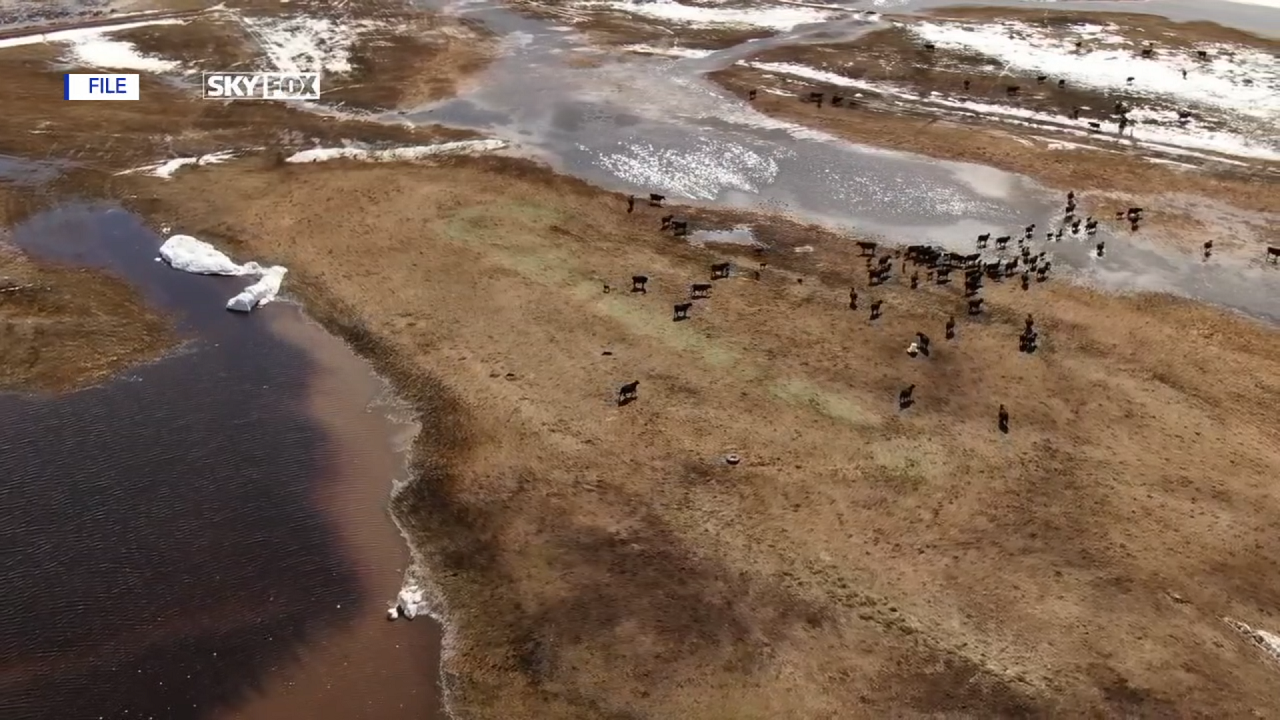RICH COUNTY, Utah — After a 40-day stretch, the National Weather Service canceled its last remaining flood advisory and warning for the Sevier River at Hatch and the Bear River at Woodruff.
Seth Weston is a lifelong rancher out in Rich County, near the Bear River.
"The water started draining off and running down the valley and back into the river and leaving," said Weston. "There are places for cattle to be."
A much different site from when FOX 13 News spoke with Weston, a little more than a month ago.
"I don't think I've ever seen it like this," said Weston.
The record-breaking snowfall, along with a delayed warm-up and the spring runoff was detrimental for Weston, who lost several calves.
"I figure I lost probably at least 24 or 25," said Weston.
The flooding also impacted Utah Department of Natural Resources Executive Director Joel Ferry.
"It was a good four feet deep on part of my farm where we grow pumpkins and we have some pastures," said Ferry.
Ferry is a fifth-generation farmer in Corinne.
"The water that came down it while it did flood and it did cause some damage, it was significantly reduced because of this kind of long-drawn-out runoff, it was almost perfect."
In the latest outlook report from the USDA's Natural Resources Conservation Service, officials say most of the snowpack in Utah's mountains has melted out, with the rest of it melting quickly.
According to the report, as of June 1st, there was an average of 3.1 inches of snow water equivalent (SWE), which is expected to be fully melted by the end of the month.
Now, farmers and ranchers are left recovering from the flooding.
"We've discussed anything from getting funding to be able to provide grants, for those farmers and ranchers that have been affected," said Bailee Woolstenhulme, Public Information Officer for the Utah Department of Agriculture and Food. "To even possibly emergency loans, low-interest rate loans through our department."
Woolstenhulme says they were hoping to get some funding during the legislative special session last month to help farmers and ranchers but were not able to make it happen.
"The good news is, is that during that special session, they did extend Governor Cox's emergency declaration over flooding which keeps options open for us," said Woolstenhulme.
Help is something farmers and ranchers say they would welcome.
"You're going have a handful of producers that are really impacted and they're impacted significantly," said Ferry.
"There is a program that the federal program that is going to pay some, I mean, if the state would even match that," Weston added.
Woolstenhulme says there are programs, like the livestock indemnity program that can help farmers and ranchers that have lost livestock in these types of situations.



